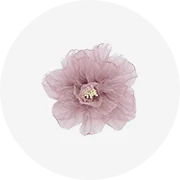Phổ biến trong ngành của bạn




Nhà Cung Cấp Biểu Tượng Tùy Chỉnh Thương Hiệu Ban Đầu Bán Buôn Arabes Al Por Thị Trưởng Phụ Nữ Nước Hoa Và Nước Hoa Của Phụ Nữ Nước Hoa
1,20 US$ - 1,50 US$
Đơn hàng tối thiểu: 1000 Cái



Bán Buôn 50Ml 100Ml Rỗng Thủy Tinh Màu Đen Có Thể Bơm Lại Chai Nước Hoa Với Phun Atomizer
0,70 US$ - 0,82 US$
Đơn hàng tối thiểu: 1 Cái







Tập trung cao độ lâu dài người đàn ông phụ nữ dầu thơm cho nước hoa mang nhãn hiệu dầu nước hoa gốc bán buôn dầu nước hoa
22,00 US$ - 30,00 US$
Đơn hàng tối thiểu: 1 Kilogram







Tùy Chỉnh Ban Đầu Nước Hoa 1:1 Bán Buôn Thương Hiệu Nước Hoa Nước Hoa Cologne Cho Nam Giới Nước Hoa Thương Hiệu Eau De Parfum Tự Nhiên Dài Cuối Cùng

3,00 US$ - 5,00 US$
Đơn hàng tối thiểu: 50 Cái
Vận chuyển mỗi chiếc: 10,04 US$






Độc Đáo Hương Thơm Danh Hiệu Phụ Nữ Lâu Dài Nước Hoa Hương Thơm Dầu Rượu Miễn Phí Nước Hoa Tinh Khiết Thương Hiệu Của Phụ Nữ Hương Thơm
42,00 US$ - 43,00 US$
Đơn hàng tối thiểu: 5 Kilogram



Honour phụ nữ, nước hoa sang trọng dầu thơm từ Givaudan firmenich, thương hiệu nước hoa, Bán buôn tinh khiết, mẫu miễn phí, lâu dài
32,00 US$ - 34,00 US$
Đơn hàng tối thiểu: 25 Kilogram
Các danh mục hàng đầu
Giới thiệu về nước hoa thương hiệu danh dự
Alibaba.com cung cấp các sản phẩm 7 nước hoa thương hiệu danh dự.




























